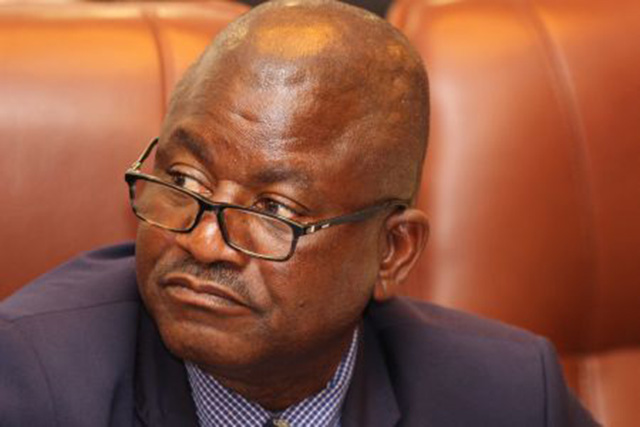28 June 2024
As the CEO of NamWater, it is my privilege to welcome you to this momentous occasion, which is the groundbreaking ceremony for the Ondangwa-Omutsegwonime pipeline.
This project marks a significant milestone in our ongoing efforts to enhance water security and support sustainable development in the Oshana and Oshikoto regions. The project we are initiating is the replacement of the Ondangwa-Omutsegwonime pipeline, specifically phase 1, which covers the section between Ondangwa and Oshali.
NamWater, officially known as the Namibia Water Corporation Ltd, was established by an Act of Parliament, Act 12 of 1997, and was registered as a company on 9 December 1997.
As a commercial entity with a public interest mandate, NamWater operates on the full cost-recovery principle, supplying bulk water to industries, municipalities, and the Directorate of Rural Water Supply in the Ministry of Agriculture, Water and Land Reform.
Our mission is to provide quality water and related services to the satisfaction of all stakeholders, while being mindful of the environment, the scarcity of water, and the dependence of all on this vital resource. Our vision is to be a sustainable water utility that provides sufficient and affordable quality water to all stakeholders.
The Ondangwa-Omutsegwonime bulk water supply scheme, also known as the South East (SE) scheme, is a vital lifeline for our communities. This scheme conveys potable water over 110km, stretching from Ondangwa to Omuthiya, and further to Omutsegwonime village. Along its route, the SE pipeline supports several branch lines, including the Onethindi-Onandjokwe, Onathinge-Onayena, Okatope-Okankolo, Okatope-Omuntele, bulk feeder North, bulk feeder South, and various Directorate of Rural Water Supply (DRWS) pipelines.
The system is reinforced by several booster pump stations located at strategic points, such as Oshali, Okatope, and Omuthiya, ensuring the continuous flow of water.
Despite its critical role, the SE pipeline has been under immense strain due to escalating water demand. The existing pipeline is no longer capable of supplying sufficient water to meet the needs of both the urban and rural schemes it serves. This shortfall is most acute during the peak demand period from September to December when there is an influx of people into the area, especially for December holidays, which leads to severe water shortages. During these months, the system struggles to fill the storage reservoirs above 50% capacity, even with continuous 24/7 pumping.
Exacerbating these supply challenges is the fact that the SE pipeline infrastructure is ageing. The pipelines, averaging 42 years, have numerous offtakes that compromise their structural integrity. Frequent pipe bursts result in regular water supply interruptions, creating a crisis-level situation for the communities relying on this water.
Recognising the urgency of the situation, we have prioritised the replacement of the most problematic sections of the SE pipeline. The sections that experience the most frequent breaks and require immediate intervention are, in order of priority, the Ondangwa-Oshali, Oshali-Okatope, and Omuthiya-Omutsegwonime sections. Today’s focus is on the first of these critical sections: the 17km stretch from Ondangwa to Oshali.
The scope of work for this phase includes the construction of a replacement pipeline for the Ondangwa-Oshali section. We are proud to announce that the contract for this work has been awarded to Homefin Properties CC, a reputable Namibian company. The actual construction is expected to be completed within 12 months.
As we move forward with this project, I want to express my gratitude to all stakeholders involved. Your dedication and commitment are instrumental in making this project a reality. I also want to acknowledge the support of the Namibian government, which has been unwavering in its efforts to improve water supply infrastructure and ensure sustainable development across the regions.
In closing, let us all recognise the critical importance of this project and the positive impact it will have on our communities. Water is not just a basic necessity; it is a catalyst for economic growth, health, and overall well-being. By investing in our water infrastructure, we are investing in the future of the regions.
Stay informed with The Namibian – your source for credible journalism. Get in-depth reporting and opinions for
only N$85 a month. Invest in journalism, invest in democracy –
Subscribe Now!







